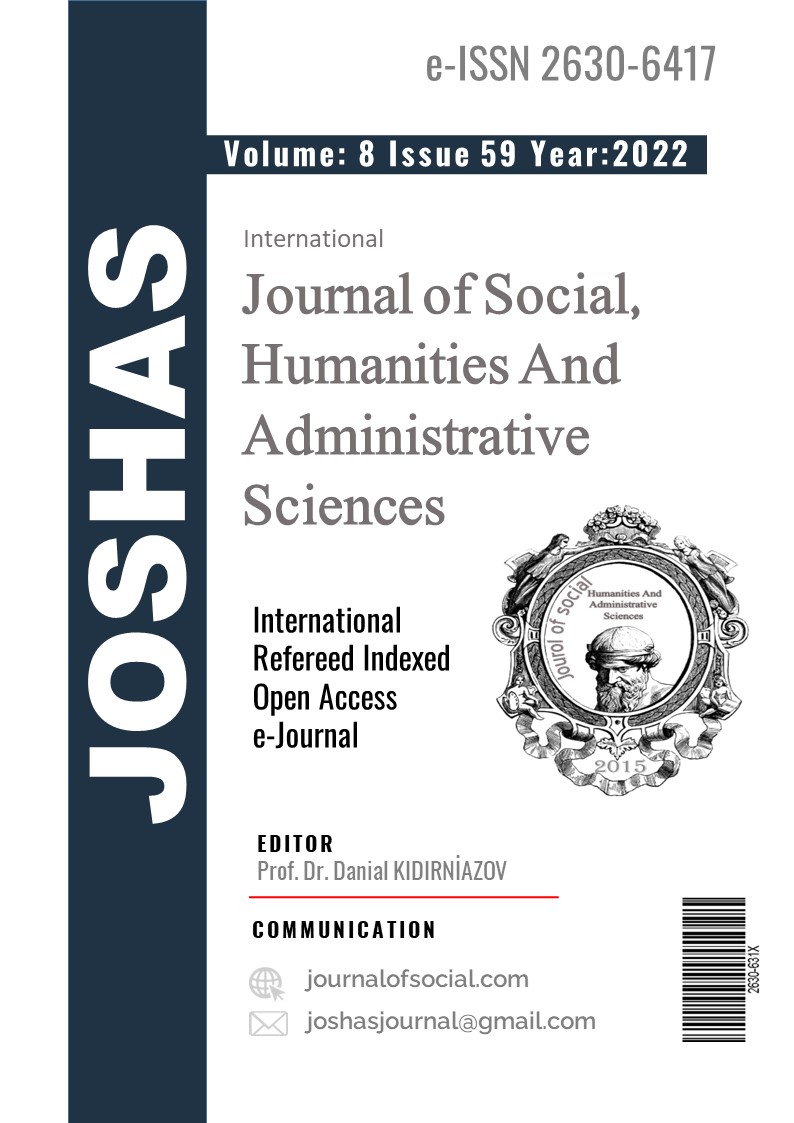Rehberli Araştırma -Sorgulama Yaklaşımına Göre Yapılan Fen Öğretiminin Köy Ortaokulu Öğrencilerinin FeTeMM Tutumlarına Etkisi
Author :
Abstract
Bu çalışmanın amacı, rehberli araştırma- sorgulama yaklaşımına göre yapılan fen öğretiminin ortaokul öğrencilerinin Fen-Teknoloji-Mühendislik-Matematik (FeTeMM) tutumlarına etkisini araştırmaktır. Çalışma grubunu, 2020-2021 eğitim-öğretim yılında Şanlıurfa ili Eyyübiye ilçesine bağlı bir köy ortaokulunda öğrenim gören 20' si deney ve 20'si kontrol grubunda olmak üzere toplam 40 öğrenci oluşturmaktadır. Çalışma da veri toplama aracı olarak FeTeMM Tutum Ölçeği kullanılmıştır Çalışmada ön test son test kontrol gruplu yarı deneysel desen kullanılmıştır. Deney ve kontrol gruplarının karşılaştırmalarında Mann Whitney U-Test, grupların kendi içindeki karşılaştırmalarında Wilcoxon İşaretli Sıralar Testinden yararlanılmıştır. Deney grubunda dersler rehberli araştırma–sorgulama yaklaşımına göre, kontrol grubunda ise yapılandırmacı yaklaşımın 5E modeline göre işlenmiştir. Elde edilen bulgulara göre deney ve kontrol grubu öğrencilerinin FeteMM Tutum Ölçeği son testinden aldıkları puanlar arasında istatistiksel olarak anlamlı bir farklılık olmadığı görülmüştür. Rehberli araştırma -sorgulama yaklaşımına göre yapılan fen öğretiminin deney grubu öğrencilerinin ve 5E yaklaşımına göre yapılan fen öğretiminin kontrol grubu öğrencilerinin FeTeMM Tutum Ölçeği son test puanları arasında istatistiksel olarak bir farklılık oluşturmadığı söylenebilir. Çalışmanın Covid-19 pandemi sürecinde yapılması, öğrencilerin olanakları iyi olmayan bir köy ortaokulunda öğrenim görmeleri, FeTeMM’e yönelik her etkinliğin yapılamaması da böyle bir bulgunun ortaya çıkmasına neden olmuş olabilir. Köy ortaokullarında öğrenim gören öğrencilere FeTeMM’e yönelik etkinliklerin yapılabilmesi açısından gerekli desteklerin sağlanması gerekmektedir.
Keywords
Abstract
The aim of this study is to investigate the effect of science teaching conducted according to the guided research inquiry approach on the Science-Technology-Engineering-Mathematics (STEM) attitudes of secondary school students. The study group consisted of 40 students, 20 in the experimental and 20 in the control group, studying at a secondary school in a village of the Eyyübiye district of Şanlıurfa in the 2020-2021 academic year. The STEM Attitude Scale was used as a data collection tool in the study. In the study, a quasi-experimental design with pre-test post-test control group was used. Mann Whitney U-Test was used for the comparisons of the experimental and control groups, and the Wilcoxon Signed Rank Test was used for the comparisons within the groups. The lessons were taught according to the guided research inquiry approach in the experimental group, and according to the 5E model of the constructivist approach in the control group. According to the findings, it was seen that there was no statistically significant difference between the scores of the experimental and control group students from the STEM Attitude Scale post-test. It can be said that there is no statistically significant difference between the STEM Attitude Scale post-test scores of the students in the experimental group who were taught science according to the guided inquiry-inquiry approach and of the control group students who were taught science according to the 5E approach. The fact that the study was conducted during the Covid-19 pandemic period, the students were educated in a village secondary school with poor facilities, and the inability to carry out every activity for STEM may have caused such a finding. Necessary support should be provided to students studying in village secondary schools in order to carry out activities related to STEM.





